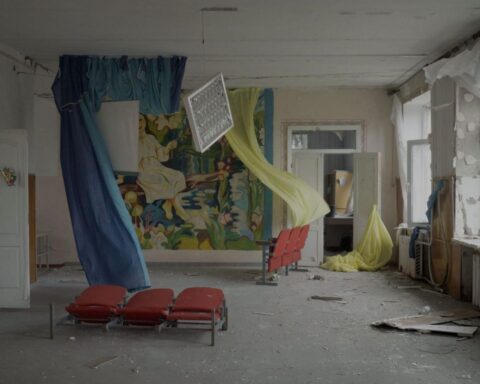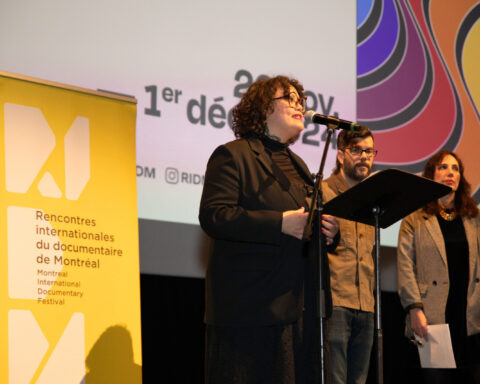Cinema Novo
(Brazil, 90 min.)
Dir. Eryk Rocha
Eryk Rocha’s Cinema Novo avoids a pedagogical, talking heads approach to documenting the Brazilian New Wave filmmaking of the 1960s and 1970s. The son of revolutionary film hero Glauber Rocha, Eryk Rocha’s doc opens on a dynamic montage of moments from Novo pictures, emphasizing people running: a couple in a vast landscape, pursued boys rushing into a barrio, and so on.
Rather than listening to a film specialist explain Novo’s methods and concerns, we get immersed in its vibe and draw our own conclusions. Kinetic, mainly black and white, the films made by the movement were shot on real locations, drew attention to ordinary people, and like New Waves everywhere projected an urgent need to communicate. Sometimes frenzied motion runs through Rocha’s doc, and as images splash across the screen, he offers only minimal explanation or contextualization.
However, the doc does intercut clips from Novo filmmakers’ interviews with its charged scenes and ecstatic moments like women showering, communing with trees, and dancing with snakes. Like all filmmakers swept up in the passion of an art form Martin Scorsese recently pronounced dead, the Brazilians talk about getting in touch with “exteriors, the street, living reality.” Director Ruy Guerra says that he tried to talk about real life “in all its complexity.”
We also hear about a self-proclaimed “cinema of disruption” and the process of “engraving on film.”
From the vantage point of 2106, it all seems a little naïve: the manifestos and rhapsodic insistence on movies as “poetry” amid simultaneous political statements that hoped to change the world. Contemporary auteurs like the Coen Brothers or Andrea Arnold don’t talk that way. Classic filmmakers like Billy Wilder or John Huston would have shot themselves before they said things like their work “was being invented as it was being created.” Lars von Trier and his pals mocked cinema manifestos with their Dogme 95 “movement” although ironically they did adhere to some of its precepts.`
In the harsh reality of Brazilian film exhibition, audiences were mostly indifferent to Cinema Novo. Rocha includes a girl who says flat out that she hates it. As in Canada and other countries, Brazil’s shot at an innovative national cinema existed mainly on the margins. Cinema Novo documents a specific experiment that hints at an unfortunate wider truth.












